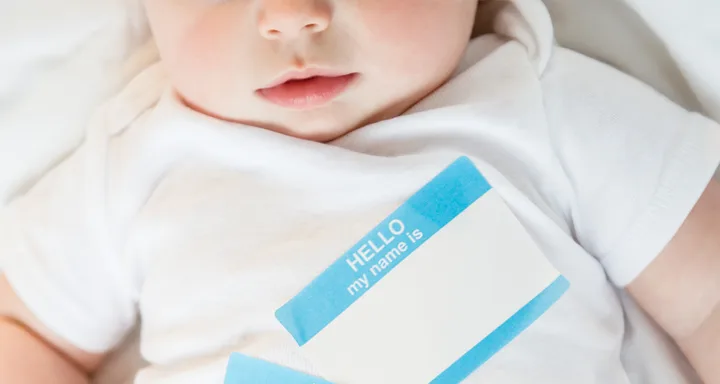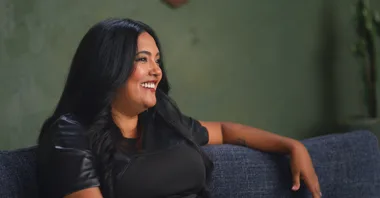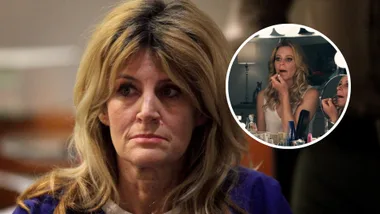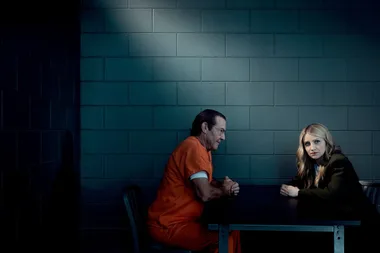When Carol Ferrone was transported back to the Seventies for the new ABC series Back In Time For Dinner the retro experience had her reflecting on her own youth and how different life is for today’s children.
“The helicopter parenting of today – which I am guilty of sometimes – doesn’t allow for kids to have as much free time or independent play,” says Carol.
“Today, kids are scheduled down to the minute and aren’t allowed to be bored. Young children are being entertained by devices rather than having a conversation with their siblings or parents at dinnertime. When I was growing up in the 70s there were no devices so we had to talk to each other.”
Her experience on the ABC show, hosted by Annabel Crabb, had Carol wondering, is there any merit in returning to old-school values to raise our 21st Century kids?
Parenting expert Dr Justin Coulson says there is a good argument for bringing back some of the old school rules although some of them – including corporal punishment – are best left in the past.
“Parents of the 70s let children be children,” says Justin, author of 10 Things Every Parent Needs to Know. “There was a lot less structure, which allowed for creativity to grow and curiosity and relationships to develop.
“But there was also a lot in Seventies parenting that was bad for kids. Parents, particularly fathers, were distant and disengaged. Parenting was quite authoritarian and research shows this approach does not lead to great outcomes in children.”
While smacking is still legal in Australia, bringing back the wooden spoon or the back of dad’s hand as punishment for bad behaviour is not something the experts advocate.
“Smacking will rupture relationships and be ignorant to what is going on in a child’s life,” says Dr Justin, a father of six girls. “Fifty years of science tells us that smacking doesn’t lead to anything productive whatsoever.
“If we’re getting it right, we are working with them rather than doing things to them. That’s the big difference discipline-wise between 1970s and 80s parenting and the parenting of today.”
With today’s kids spending their time glued to messaging apps like Snapchat and Kik instead of venturing outdoors, is it even possible to instil in them the seemingly free and easy upbringing of 40 or 50 years ago, especially when 21st century parents are so apprehensive?
Media matriarch, Seventies mother and today’s grandmother, Ita Buttrose, says if parents in 2018 took a chill pill and let their children explore and adventure, life would be easier for everyone.
“Kids need play time,” says Ita. “Life’s all too organised in today’s society. They need to get dirty and fall over and graze their knee. They should be able to play on a slippery dip without someone hovering over them anxiously.
“But I do think kids need boundaries and rules. Kids need to know what is acceptable and not acceptable. And you have to stick to it. Bad luck if they don’t like it. You’re in charge. Kids have to know there’s a price to pay if they’re naughty.”
Dr Coulson says the 70s parent got it right when they advised their children to be home by the time the street lights came on.
“Kids thrive when they have a really healthy balance of structured and unstructured time every day,” he advises. “Play is when you are rejuvenating, restoring and reenergising yourself.
“In unstructured time, kids have autonomy and a sense of control and volition over their lives. Unstructured time is a good thing.”
With 60 percent of children now driven to school – as opposed to 16 per cent in the 70s – some researchers think we may be breeding a generation of ill-equipped youngsters.
In her study Stepping Out – Children Negotiating Independent Travel, Dr Lisa Gibbs found that solo travel is key to a child’s future development.
“Children’s lack of independent mobility is a concern for their levels of physical activity, but also for the broader personal, spatial and social skills that moving freely about neighbourhoods and cities can help foster in children,” she says.
Which suggests today’s helicopter or controlling parent should perhaps emulate laidback parents of the Seventies like Ita.
“We were a lot more relaxed as parents back in the 70s,” says Ita. “Technology has created havoc with everybody’s life because young and even middle aged parents feel they must be available and accessible on the phone 24/7.
“Parents drive themselves at a ridiculous timetable and they need to take a deep breath and just enjoy their children.”
Dr Coulson agrees everyone in the household should be limiting their screen time and parents should, indeed, be giving their kids a longer leash.
“When we cross that line of being involved and being over-involved we create in our children all the usual subjects like narcissism and entitlement, a lack of resilience and an inability to think and do for oneself and that is detrimental for kids,” he says.
“Kids need three things and they all start with ‘L’. Kids need Love, Limits and Laughter. If we give our kids these three things, then, it doesn’t matter what decade we are born in, we’ll get a good result.”
The 70s episode of Back In Time For Dinner can be watched on ABC iview.
Wentworth is back with a whole new season, and we have plenty to say about it. Plus, we talk about Seven’s reality hit First Dates, and reveal new details about how The Doctor Blake Mysteries is coming back after Craig McLachlan’s recent scandal. Check out our interview with Nadine Garner! We also judge the returns of The Affair and Poldark and cast our spotlight on Stan’s hidden gem, Claws.
 Getty
Getty









